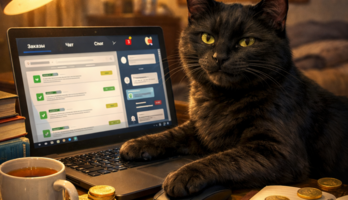flynn_gillian_gone_girl (1) (858987), страница 22
Текст из файла (страница 22)
“That’s the kind of action we need. We suspect it wasn’tdone right the rst time, we do it ourselves. Because I just—I’m just not that impressedwith what’s been done so far.”Rand put a hand on his wife’s shoulder, a signal this refrain had been expressed andreceived many times.“I’d like to come with you, Nick,” he said. “Tonight. I’d like to come.” Rand waswearing a powder-blue golf shirt and olive slacks, his hair a gleaming dark helmet. Ipictured him trying to hail-fellow the Hillsam brothers, doing his slightly desperate oneof-the-guys routine—hey, I love a good beer too, and how about that sports team of yours?—and felt a flush of impending awkwardness.“Of course, Rand.
Of course.”I had a good ten unscheduled hours to work with. My car was being released back tome—having been processed and vacuumed and printed, I assume—so I hitched a ride tothe police station with an elderly volunteer, one of those bustling grandmotherly typeswho seemed slightly nervous to be alone with me.“I’m just driving Mr. Dunne to the police station, but I will be back in less than halfan hour,” she said to one of her friends. “No more than half an hour.”Gilpin had not taken Amy’s second note into evidence; he’d been too thrilled with theunderwear to bother.
I got in my car, ung the door open, and sat as the heat drooledout, reread my wife’s second clue:Picture me: I’m crazy about youMy future is anything but hazy with youYou took me here so I could hear you chatAbout your boyhood adventures: crummy jeans and visor hatScrew everyone else, for us they’re all ditchedAnd let’s sneak a kiss … pretend we just got hitched.It was Hannibal, Missouri, boyhood home of Mark Twain, where I’d worked summersgrowing up, where I’d wandered the town dressed as Huck Finn, in an old straw hat andfaux-ragged pants, smiling scampishly while urging people to visit the Ice CreamShoppe. It was one of those stories you dine out on, at least in New York, because noone else could match it.
No one could ever say: Oh yeah, me too.The “visor hat” comment was a little inside joke: When I’d rst told Amy I playedHuck, we were out to dinner, into our second bottle of wine, and she’d been adorablytipsy. Big grin and the ushed cheeks she got when she drank. Leaning across the tableas if I had a magnet on me. She kept asking me if I still had the visor, would I wear thevisor for her, and when I asked her why in the name of all that was holy would shethink that Huck Finn wore a visor, she swallowed once and said, “Oh, I meant a strawhat!” As if those were two entirely interchangeable words. After that, anytime wewatched tennis, we always complimented the players’ sporty straw hats.Hannibal was a strange choice for Amy, however, as I don’t remember us having aparticularly good or bad time there, just a time.
I remember us ambling around almost afull year ago, pointing at things and reading placards and saying, “That’s interesting,”while the other one agreed, “That is.” I’d been there since then without Amy (mynostalgic streak uncrushable) and had a glorious day, a wide-grin, right-with-the-worldday. But with Amy, it had been still, rote. A bit embarrassing. I remember at one pointstarting a goofy story about a childhood field trip here, and I saw her eyes go blank, andI got secretly furious, spent ten minutes just winding myself up—because at this point ofour marriage, I was so used to being angry with her, it felt almost enjoyable, likegnawing on a cuticle: You know you should stop, that it doesn’t really feel as good asyou think, but you can’t quit grinding away.
On the surface, of course, she saw nothing.We just kept walking, and reading placards, and pointing.It was a fairly awful reminder, the dearth of good memories we had since our move,that my wife was forced to pick Hannibal for her treasure hunt.I reached Hannibal in twenty minutes, drove past the glorious Gilded Age courthousethat now held only a chicken-wing place in its basement, and headed past a series ofshuttered businesses—ruined community banks and defunct movie houses—toward theriver.
I parked in a lot right on the Mississippi, smack in front of the Mark Twainriverboat. Parking was free. (I never failed to thrill to the novelty, the generosity of freeparking.) Banners of the white-maned man hung listlessly from lamp poles, posterscurled up in the heat. It was a blow-dryer-hot day, but even so, Hannibal seemeddisturbingly quiet. As I walked along the few blocks of souvenir stores—quilts andantiques and ta y—I saw more for-sale signs.
Becky Thatcher’s house was closed forrenovations, to be paid for with money that had yet to be raised. For ten bucks, youcould gra ti your name on Tom Sawyer’s whitewashed fence, but there were fewtakers.I sat in the doorstep of a vacant storefront.
It occurred to me that I had brought Amyto the end of everything. We were literally experiencing the end of a way of life, aphrase I’d applied only to New Guinea tribesmen and Appalachian glassblowers. Therecession had ended the mall. Computers had ended the Blue Book plant. Carthage hadgone bust; its sister city Hannibal was losing ground to brighter, louder, cartooniertourist spots. My beloved Mississippi River was being eaten in reverse by Asian carpip- opping their way up toward Lake Michigan. Amazing Amy was done.
It was theend of my career, the end of hers, the end of my father, the end of my mom. The end ofour marriage. The end of Amy.The ghost wheeze of the steamboat horn blew out from the river. I had sweatedthrough the back of my shirt. I made myself stand up. I made myself buy my tour ticket.I walked the route Amy and I had taken, my wife still beside me in my mind. It was hotthat day too. You are BRILLIANT. In my imagination, she strolled next to me, and thistime she smiled. My stomach went oily.I mind-walked my wife around the main tourist drag. A gray-haired couple paused topeer into the Huckleberry Finn house but didn’t bother to walk in.
At the end of theblock, a man dressed as Twain—white hair, white suit—got out of a Ford Focus,stretched, looked down the lonely street, and ducked into a pizza joint. And then therewe were, at the clapboard building that had been the courtroom of Samuel Clemens’sdad. The sign out front read: J. M. Clemens, Justice of the Peace.Let’s sneak a kiss … pretend we just got hitched.You’re making these so nice and easy, Amy. As if you actually want me to nd them, tofeel good about myself. Keep this up and I’ll break my record.No one was inside. I got down on my knees on the dusty oorboards and peeredunder the rst bench. If Amy left a clue in a public place, she always taped it to theunderside of things, in between the wadded gum and the dust, and she was alwaysvindicated, because no one likes to look at the underside of things.
There was nothingunder the rst bench, but there was a ap of paper hanging down from the benchbehind. I climbed over and tugged down the Amy-blue envelope, a piece of tapewinging off it.Hi Darling Husband,You found it! Brilliant man. It may help that I decided to not make this year’streasure hunt an excruciating forced march through my arcane personalmemories.I took a cue from your beloved Mark Twain:“What ought to be done to the man who invented the celebrating ofanniversaries? Mere killing would be too light.”I nally get it, what you’ve said year after year, that this treasure hunt shouldbe a time to celebrate us, not a test about whether you remember every thing Ithink or say throughout the year. You’d think that would be something a grownwoman would realize on her own, but … I guess that’s what husbands are for.
Topoint out what we can’t see for ourselves, even if it takes five years.So I wanted to take a moment now, in the childhood stomping grounds ofMark Twain, and thank you for your WIT. You are truly the cleverest, funniestperson I know. I have a wonderful sense memory: of all the times over the yearsyou’ve leaned in to my ear—I can feel your breath tickling my lobe, right now, asI’m writing this—and whispered something just to me, just to make me laugh.What a generous thing that is, I realize, for a husband to try to make his wifelaugh.
And you always picked the best moments. Do you remember when Insleyand her dancing-monkey husband made us come over to admire their baby, andwe did the obligatory visit to their strangely perfect, over owered, overmu nedhouse for brunch and baby-meeting and they were so self-righteous andpatronizing of our childless state, and meanwhile there was their hideous boy,covered in streaks of slobber and stewed carrots and maybe some feces—nakedexcept for a frilly bib and a pair of knitted booties—and as I sipped my orangejuice, you leaned over and whispered, “That’s what I’ll be wearing later.” And Iliterally did a spit take. It was one of those moments where you saved me, youmade me laugh at just the right time.













